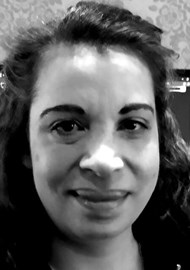Patient safety in the unregulated world of cosmetic plastic surgery is now an extremely serious global issue. The media is always ready to sensationalise disasters but what can be done to prevent them? One key issue is the concept of entrepreneurship in medicine. The entrepreneur is always looking over the horizon, beyond the land of regulation.
The entrepreneur has a network of contacts in a wide variety of disciplines and will discuss advances in one field and the potential application in another field. They are looking to provide a niche service and view the timing of the set-up and validation in business terms rather than scientific, evidence-based, terms. Despite all potential setbacks the entrepreneur strikes gold. Now what happens? Others want to follow, setting up their own clinics but without the critical training.
The entrepreneur was not ‘lucky’, he was a skilled surgeon, a renowned scientist and a highly respected critical thinker. He took care of every detail and was rewarded. The inexperienced medical practitioner will inevitably run into problems and that is the tragedy: every year patients are permanently maimed, blinded, and even killed, at the hands of rogue practitioners.
At this current time, numerous plastic surgery websites are generating substantial revenue from selling advertising packages and permitting physicians to self-verify their qualifications. As a patient advocate and founder of Cosmetic Surgery Advancements, I find this completely unethical. I strongly believe plastic surgery websites have a responsibility to ensure the qualifications of all physicians are checked, before being listed. People that visit these websites trust them to be providing accurate information about the physicians. Unfortunately, this means that many people do not think to double-check their qualifications with the appropriate bodies, to check they are genuine. In the UK, USA, Canada and Australia, as well as many other countries around the world, plastic surgery can be legally performed by any qualified surgeon. This means a cosmetic or aesthetic surgeon may have never had any specialty-specific, plastic surgery training. Even more astounding, in the USA, Florida’s health department does not even keep records of deaths following cosmetic surgery procedures.
Private patients, regardless of the country they reside in, should always check that a surgeon is a specialist plastic surgeon. Without a specialist plastic surgery qualification, a surgeon may only have basic surgical training and the chances of complications and far worse, fatality, become much higher.
Patient fatalities and serious complications
A horrifying record of patient fatalities at the hands of surgeons with no specialist plastic surgery training can be found around the world. Below are just a few tragic examples of patients reported to have died or suffered serious complications, during or following plastic surgery procedures.
Strax Rejuvenation was co-founded by Jeffry Davis Strax and operated two clinics for eight years in Florida. USA Today’s investigation reported that during this time eight women died at the two clinics, following surgical procedures. Two of the women who died had apparently been left unsupervised under opioid-induced sedation. The two clinics also had 45 documented reports which included, unclean operating theatres, incomplete patient documentation, and unsafe equipment. Even though each of the eight deaths was reported and documented, the clinics were permitted to continue providing plastic surgery procedures. In 2013 a total of 13 negligence lawsuits had been filed against the two clinics run by Strax Rejuvenation.
Spectrum Aesthetics in Florida was co-founded by Juan Hernandes with his business partner, Evelyn Parrado in 2012. The physicians that worked there were not qualified plastic surgeons and one of their most booked physicians, Dr Osakatukei Omulepu, had reportedly tried to take his board exams multiple times and failed. Nicola Mason went to Spectrum Aesthetics for a Brazilian butt lift (BBL); she later filed a complaint that Dr Omulepu performed a tummy tuck procedure which she had not asked for and which left her with terrible scarring.
Seduction was run by Rayner Aguiar and operated four clinics, including Aventura and New Life Plastic Surgery, again in Florida.
The Aventura Clinic employed Dr Omulepu who performed a procedure in 2017 on Crystal Call. Following this, she was found unconscious by her mother. She was then taken to hospital and diagnosed with shock and kidney failure; she survived following an emergency blood transfusion.
The New Life Surgery Center also employed Dr Omulepu. He performed a BBL on Adianet Galvan, who died from a fat embolism, shortly after the procedure. Jolie Plastic Surgery Center, one of the largest in Miami, employed Dr Arnaldo Valls, who performed a BBL in 2017 on Kizzy London. She died following the procedure. Dr Valls is not listed as one of the 11 surgeons accredited by the Florida Board of Medicine and Florida Department of Health, at the Jolie Plastic Surgery centre.
Art Siluette Aesthetic Surgery in Mexico employed an unlicensed plastic surgeon, Dr Jesus Manuel Baez Lopez. During the liposuction and tummy tuck procedure performed by Dr Lopez, Keuana Weaver died on the operating table. Dr Lopez also performed liposuction and a tummy tuck procedure on Kanisha Davis. She suffered major, life-threatening haemorrhaging and was treated for two weeks in a hospital in California. Esmeralda Iniguez suffered from septic shock following a procedure performed by Dr Lopez and also had to have emergency treatment at a hospital in California.
Additional patient safety issues with plastic surgery
As previously stated in this article the lack of requirements regarding minimum accreditation and surgical qualifications means that, in many countries, anyone with a medical licence can perform plastic surgery. This means that a plastic surgery procedure can be performed by a physician who has never received any surgical training or obtained any surgical qualifications. The lack of regulations means that guidelines to prevent risks and complications occurring, prior to and after plastic surgery procedures are often ignored.
Dangerous plastic surgery procedures are also more likely to be performed by physicians who are not specialist plastic surgeons. Plastic surgeons in the UK currently do offer the BBL procedure, which is considered one of the most dangerous plastic surgery procedures available, with a high fatality rate.
The lack of regulation relating to plastic surgery also means that full patient medical records are often not reviewed. This results in plastic surgery procedures or general anaesthetics being administered when it is not safe for the patient; life-threatening allergies can also be missed.
My opinion
Perhaps the saddest aspect of plastic surgery and patient safety, is that many of the deaths and ongoing medical issues following plastic surgery procedures could have been prevented. Stricter regulation and requirements to ensure only qualified surgeons are legally able to perform plastic surgery would, without doubt, make a significant difference. The number of people who die unnecessarily every year would be reduced and a smaller percentage of people would have ongoing complications, following a plastic surgery procedure. Even sadder is that the issue of plastic surgery and patient safety is often disregarded as it is considered elective surgery. This may be the case, yet surely no one deserves to die or suffer from complications for the rest of their lives.
Professor Peter Hollands
I had the privilege of speaking with Prof Peter Hollands. His recently published book The Regeneration Promise aims to raise awareness of unregulated clinics, outside the UK, offering stem cell treatments. The UK Department of Health has welcomed this: Lord Bethell of Romford, Parliamentary Under Secretary of State at the department, says, “I share his concern for patients and families who may be offered false hopes at considerable expense and potential harm and welcome the publication of his book as a resource to help them.”
Prof Hollands said he was surprised that plastic surgery is not more strictly regulated. He also expressed great concern for patient safety to be taken more seriously, to prevent death and serious complications, following plastic surgery procedures.
My personal story
I have been extremely fortunate to be cared for by an ethical, appropriately qualified, caring, specialist plastic surgeon. To achieve the size and shape breasts I wanted, I have had three breast augmentations, going a little bigger every time. My cup size has increased from a 32A to a 32F and I am very satisfied with my final outcome over 15 years later. I have had multiple rhinoplasty procedures to reshape the bone, remove a bump and create a ski slope and reduce the projection and overall size of my nose tip. To give me the flat stomach I had worked so hard for, after losing 48 pounds, I chose to have liposculpture. I have been fortunate to have had no complications following any of my plastic surgery procedures.
I find it abhorrent that plastic surgery websites make millions from advertising packages by permitting self-verification of qualifications. I believe they partially shoulder the responsibility for the deaths of multiple individuals at the hands of surgeons who did not have the experience or qualifications to perform plastic surgery. I urge patients to check a surgeon’s qualifications and be very sceptical about information and clinical photographs on websites. Patients should be advised to research thoroughly, take their time and have a full consultation before committing to any procedure.
Patient safety should be the highest priority for all websites that provide physician information. My mission is to educate individuals about the importance of checking if a website allows physicians to self-verify their information. At this time, to my knowledge, Cosmetic Surgery Advancements is the only website with a consultant register, that verifies all consultant’s qualifications and memberships to professional bodies, on a continuous rolling three-month basis. Until this is the standard all websites adhere to, I feel many more people will be harmed or die at the hands of unethical physicians and plastic surgery companies, who blatantly disregard patient safety in order to make money.
Reference
1. Burd A. Plastic surgery and aesthetic medicine: specialties and specialists. The PMFA Journal 2015;2(3) www.thepmfajournal.com/features/
features/post/plastic-surgery-and-aesthetic
-medicine-specialties-and-specialists
Editor’s comment from Andrew Burd:
I am really grateful to Annabelle for sharing her background and experience in this very sensitive area. Some of the misunderstandings arise from the lack of consensus terminology: simple things like the difference between surgery and medicine? What about cosmetic surgery and reconstructive surgery? They both have to be aesthetically acceptable. Training, qualifications, accreditation: none guarantees competence. Word of mouth and personal referrals can lead to additional confusion.
I am not sure if we have gone past the point of no-return in terms of allowing competence-based surgeons to be assessed; and the competencies would relate to actual procedures performed. The accreditation process should be focused on the outcomes and not be influenced by prior training. It could be done if there was a less territorial approach to specialisation. In time cosmetic surgery must become a specialty in its own right. It must be distinct from plastic surgery, but the skills and the talents of the well-trained plastic surgeon make them ideal professionals to perform very high level cosmetic procedures with a high rate of success. The only thing is that the plastic surgeon will need to do a specific fellowship or post specialisation training in cosmetic surgery. The same training would be available to young medical practitioners who were not involved in training in any other disciplines.
We have discussed this issue before and I remain firmly of the opinion that we should be assessing competence not qualifications. And competence should be determined by patient outcome assessment. That is the way to get a picture of the ‘whole package’. I quote from a previous PMFA article, “a specialist is only a specialist if they are special but you do not need to be a specialist to be special. For the patient it is far more important for the practitioner to be special than to be a specialist.” [1].
COMMENTS ARE WELCOME









